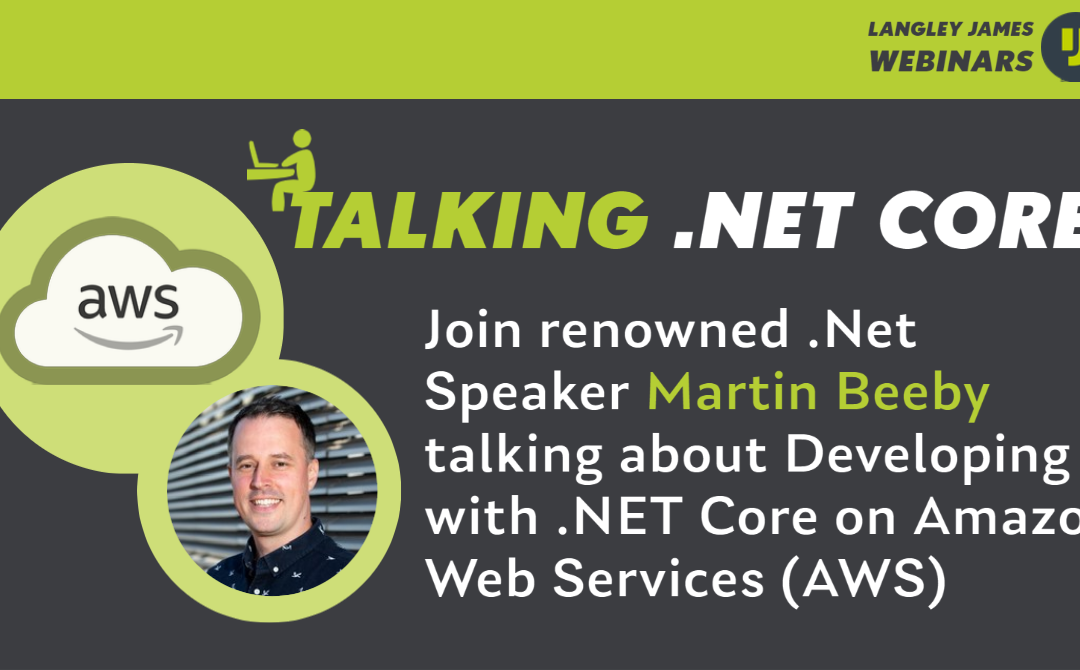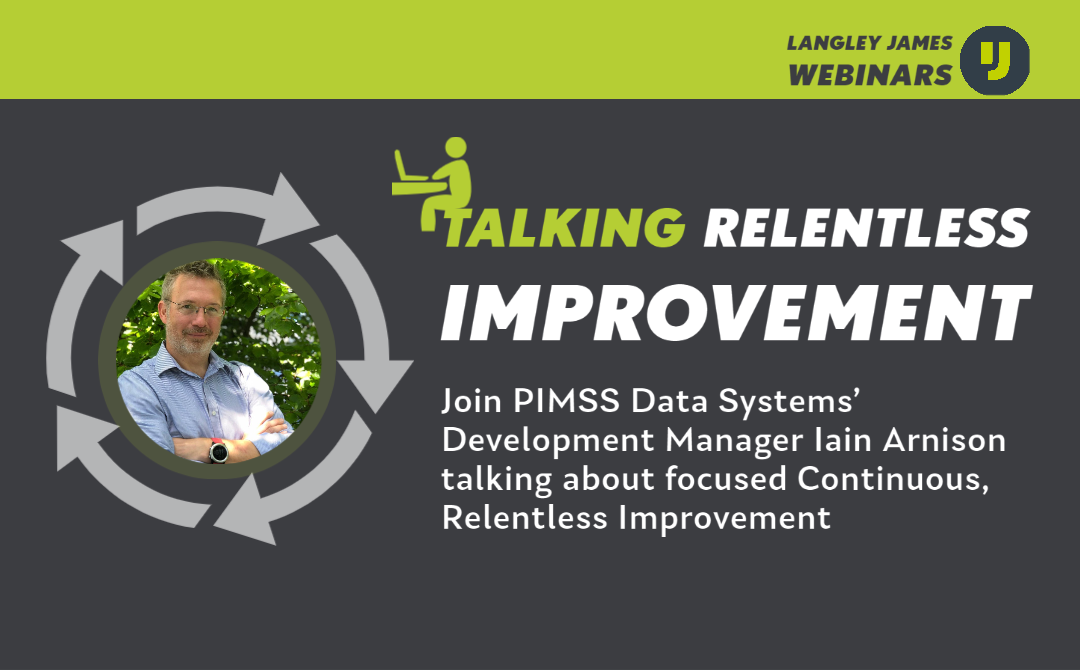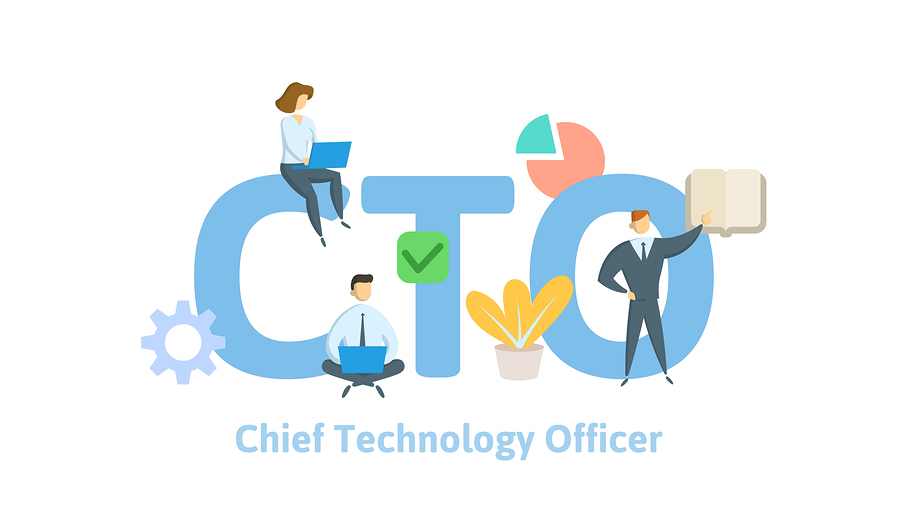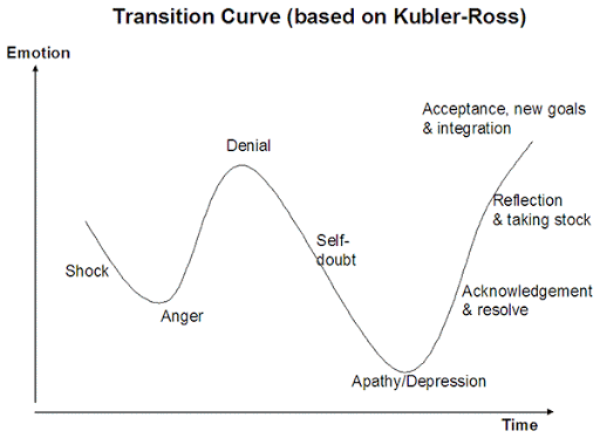
Watch our Latest Webinar on Amazon Web Services (AWS) with .Net Core



A Chief Technology Officer (CTO), sometimes known as a chief technical officer or chief technologist, is an executive-level position in a company or other entity whose occupation is focused on the scientific and technological issues within an organisation.
Salary research specialist PayScale says popular skills for Chief technical officers, include expertise in software architecture, leadership, IT management, product development, and project management. However, Chief technical officers are increasingly praised for their knowledge of pioneering areas of technology, such as digital products, technical vision, and research and development (R&D).
Indeed, most hiring managers know they have to look beyond a job candidate’s technical qualifications when staffing for a Chief technical officer role. To get this kind of insight, businesses need to come up with a set of thoughtful interview questions to ask top candidates. Likewise, candidates need to understand what types of questions will be expected of them when they apply for a Chief Technical officer job role.
In order to help provide insight into the types of questions which will determine whether a candidate has the appropriate skills and knowledge for your business, here is a list of the top 3 must ask Chief Technology interview questions.
1) What experience do you have working with developers?
When Contrary to popular beliefs, not all Chief technology officer candidates have a working knowledge of managing software development projects, and those that do will have their own personal styles and approaches to overseeing team operations – whether it be from a distance or having a hands-on approach.
Answers to this question will provide the company with insights into your management styles and how this accordingly fits with their expectations. As for the company hiring, this interview question is extremely important to render whether this candidate’s style of management fits in with the existing practices and norms in place within the business.
For the Employer:
Analyse their previous work managing development teams and the specific examples of leading successful development projects.
For the Candidate:
In order to answer this common interview question accordingly, it is advantageous to cite your previous role and experience managing development teams. Provide specific examples and the overall outcome of these projects in order for them to gauge your approach. You should consider what skills you have brought to the table and how effectively you managed the team to stay on task and get the job complete. Do you have a developing background, if so, did you actively participate in the developing process?
Example: “I come from a web-developing background, so I like to take a hands-on approach with my development team managers to stay in the loop with the ongoings of the project and provide assistance when required”.
2) What experience do you have with software development or programming languages?
The role of a Chief Technical officer differs from company to company. There are several types of Chief Technical officers and typically, the software development companies choose the one that perfectly aligns with their business needs and objectives. The most dominant Chief Technical officers in the field are technical and operational.
Consequently, candidates who are from a technical Chief technical offices background will most likely have had experience managing their IT departments and take a more hands-on approach. A Chief technical officer from management or operational background will often leave details to their managers. Thus, asking this interview question enables you to gauge these issues.
For the Employer:
Look for their interests in the technical details of information technology and the candidate’s ability to articulate and confidently respond to the question. Personal side projects with appropriate examples are also important responses to suss whether their skills and experience is admirable for your business practices.
For the Candidate:
If you have taken a technical leadership type of approach in your previous job role, discuss your appreciation of utilising tools and technologies. Usually a software development company requires the CTO to have appropriate knowledge of creating an MVP which is expected to roll out in the target market. Discuss your ability to coach, mentor, train and support your staff in previous projects, sharing your experience knowledge to help those novices in the team easily adopt company culture.
Answering from an operational perspective, mention distinct examples of when you have worked with teams using software development or programming languages, establishing a strategy and managing the development process in the best possible way.
Example: ‘I come from an operational background, so I’m not an expert in programming. Although, I have first-hand experience in understanding how good managers leader developer teams by working closely with them to achieve a common goal”.
3) How will you keep up to date with current trends in technology?
Technology is an ever-changing industry. It is therefore vital for companies to employee someone who recognises the need to stay up to date on the technical developments within the industry. Thus, this interview question investigates whether the candidate is a suitable fit with an organisation. They should choose examples that relate to managing a business, especially an IT department.
For the employer:
Analyse their interest in continuing education in addition to their knowledge of current technology trends. Explore their management philosophy and whether they are a “cultural fit” to the organisation.
For the Candidate:
One of the responsibilities as a technical CTO is selecting the appropriate mobile or web development stack. They should easily identify the best technologies that have a great influence on project stability, scalability, and maintainability. Consequently, researching trends and products within the IT sphere is vital for this job role to ensure the company is adapting to the newest innovations – a landscape that is dramatically changing on a continuous basis.
Even if you do not maintain the necessary skills to put these technological innovations into practice, it is still extremely vital that you are aware of the current technological flow. A CTO needs to follow all critical trends that bombard the IT sphere and you will have to consider what the competitors do in order not to miss out on something essential. Having knowledge of existing and current trends and confidently articulating this will demonstrate to a company your ability to research as well as your genuine interest in this field of work.
Example: “This year I enjoyed reading ABC Technology Trends. It opened my eyes to the need to adopt proven technologies and the risks of buying into the leading edge too soon.”

Possibly looking to downsize your workforce. So, what can you do as an employer to support those leaving your business?
Making people redundant is never easy, and when you have loyal individuals who have been with you for a long time, you probably want to give them as much help as you can.
One way to do this is to provide them with outplacement support – help in the form of CV writing, job hunting, interview guidance, self-employment, or even retirement planning. You may be experienced in these areas and want to provide this help yourself, but the uneasiness of the situation means few employees will take up your offer as they feel uncomfortable over the situation.
Employees feel a range of emotions, plotted out by Kubler-Ross – an American psychologist. She highlighted the changes in emotions and the rollercoaster of feelings they may be experiencing, with at the very worst apathy and depression creeping in.
Self-doubt is often the route cause of this most extreme feeling. When an employee sends out a CV to over 50 companies and they do not even get a reply from any, they lose self-confidence and feel as if they have no future. But the reality is that their CV is not highlighting what an employer is looking for or they are not up to speed on modern job-hunting techniques. Consequently, they need professional guidance.

Modern job hunters often do not realise that recruiters in 2020 spend as little as 15 seconds reading a CV. A survey conducted by ‘The Times’ highlighted for school leavers is even less: 8.8 seconds.
Also, candidates found on CV databases (including LinkedIn) fill over 60% of the vacancies with only 20% of jobs these days being commercially advertised.
Going back 15 years we talked about the ‘hidden job market’. 25% of jobs were being filled by speculative approaches, 25% of vacancies through networking. There is a new hidden job market that modern-day job hunters need to guide through.
To really help employees who are exiting your business, it is often best to bring in independent but qualified individuals to; work with your existing staff, listen to their fears, be non-judgemental, and above all, be supportive and practical.
Langley James has recently teamed up with an established outplacement provider who has supported several thousand job hunters back into work and can now provide your staff with the support they need to move forward. Their practical and straight forward approach quickly focuses on job hunt activity, with their consultants taking a very ‘hands-on’ approach, rewriting or even writing from scratch a CV, optimising CV for CV sifting software used on CV databases.
In a recent CIPD survey, it highlighted that over 60% of employers now use interview competency (behavioural) based questions. Their consultants are all highly experienced interviewers and able to help individuals build up scenario-based answers prior to interviews, feeding back on both content and structure of S.T.A.R. based answers.
Operating both the UK and the Republic of Ireland, they are currently providing their support online using screen-sharing technology. The level of online support they are giving is as good as their consultant sitting beside an individual, but a lot safer for both concerned. If you would like more information please get in contact by filling in your personal details in our form below and our team will be happy to help…

Most candidates research key personnel of a prospective employer prior to an interview however, with an increasing amount of personal information being made available online employers are now just as likely to check whether or not a candidate is hiding any skeletons in their closet.
It may be an exaggeration to say the internet is awash with deceitful individuals and businesses but high-profile cases of dishonesty and even outright criminal activity reinforce the need to ensure comprehensive background checks are carried out before any commitment is made.
Many employers now include an online search of candidates as part of their recruitment process. It is free and quick and it can often provide valuable insight into a candidate, both good and bad, which can help an employer to base a hiring decision on more than just a relatively brief meeting with a highly polished candidate during an interview.
The practice of researching candidates prior to interview raises a number of legal and moral questions but here is a list of online resources that can be used to gather information held in the public domain.
Employers should be prepared for what they might find but it makes sense to utilise such a rich source of information in order to make more informed hiring decisions.
Our expert IT recruitment consultants are here to take the pressure off you when recruiting someone new, permanent or contract. We liaise with candidates with the utmost care to ensure that their candidate experience is a positive one. Call us on 0207 788 6600 and let us help you Recruit Someone Worth Recruiting.

Leading IT Recruitment Consultancy, Langley James has appointed Richard Jones as Principle Consultant focused on .Net Professionals in London and the Home Counties.
Richard brings with him a wealth of experience gained from a 10-year career in the recruitment industry. Most recently, Richard completed a very successful 3.5 year period as a Senior Consultant for Scantech within the IT and Cyber Security teams. He has worked in the recruitment sector since 2010 and previously held agency positions at IT recruiters Jam and Korus.
In addition to his recruitment prowess, Richard is a world-class sailor having competed internationally and is currently ranked number 2 in the world.
“We’re very pleased to welcome someone of Richard’s calibre to the team. Expanding our Software Development team with a .Net specialist recruiter compliments our service range neatly and will pave the way for further expansion into IT’s key talent short sectors.” Commented Kieran Delaney, Sales and Marketing Manager.
This year, Langley James celebrates its 20th birthday. In that time the business has grown into one of the UK’s most respected IT recruitment agencies working with a wide range of clients up and down the country. Focused mainly on IT Infrastructure, Software Development, Security and Support, Langley James has built a reputation for being able to provide strong, quality shortlists within just 72 hours of instruction.
“We owe much of our success to our focus on candidate attitude, client culture fit and career motivation. Most IT professionals can write a decent CV containing all the right keywords for our databases to search for, however fact matching only gets a recruiter so far. Our clients know that a Langley James candidate will not only possess all the essential qualifying criteria but will also likely match their unique vibe. Interviewing is a challenging skill that takes a great deal of practice to get right so, training and team sharing is at the heart of everything we do.” James Toovey, MD said in a recent interview.
Our expert IT recruitment consultants are here to take the pressure off you when recruiting someone new, permanent or contract. We liaise with candidates with the utmost care to ensure that their candidate experience is a positive one. Call us on 0207 788 6600 and let us help you Recruit Someone Worth Recruiting

Most managers settle on their own style of interviewing but is it wise to have just one approach?
If you’re responsible for hiring IT personnel, whether you work for a tech firm or are responsible for recruitment within the IT department, getting the interview right could be crucial to employing the right person for your team. Now, we’ll do our very best to help source the best suited and most well skilled candidates, but it’s down to you to make the final decision, and the type of interview you prepare for your eager new candidates is vital for providing you with the information you need to make this decision.
Regardless of the route you take with your interviewing no doubt there will be a traditional face-to-face interview involved somewhere along the line. There are options here too; maybe you’re happy using Skype, or perhaps you’d like to get other managers involved in the process and conduct a panel style interview? However you choose to conduct this stage of interview it’s a fundamental step that allows you to meet candidates and assess their ability to fit within the culture of your team and organisation as a whole. However, here are some explanations, tips and examples of some of the most popular IT interview styles.
Scenario Testing
Scenario testing involves creating a scenario that the candidate is likely to face in their role to test their skills and how they deal with the situation. Ideally there’d be five characteristics to scenario testing; 1 – there needs to be a story that is; 2 – motivating; 3 – credible; 4 – complex; and 5 – easy to evaluate. In some interviews you may choose to use test cases, which tend to be a single step, but the scenario test covers a number of steps that would be involved somehow in the ‘business process flow’ and tests a situation from end to end.
Technical Testing
Technical interviewing will usually be specific to your business or function and will depend entirely on what your organisation does, the programmes and software it uses and the role in which you are recruiting for. However, it’s not at all unusual for an IT interview to include some form of technical testing. Presenting candidates with a diagram or snippet of code for analysis would test how they put their knowledge into action but also should give you an insight into their thought process and how they approach tasks or problems.
Competency Based
Competency based questions delve into a candidate’s story based evidence to support claims of experience or expertise. Generally interviewers will ask ‘tell me about a time when…’ or “give me an example of…” questions. They’re a great opportunity to understand the context and application of skills and experience seldom learnt from a CV. Also, questions like ‘how have you succeeded in a team project’ will allow you to find out more about the candidate’s personality, professional style and likes and dislikes.
Portfolio Based
Interviews for certain roles may benefit from the candidate presenting a portfolio of work. Particularly in web design or more creative roles.
Our expert IT recruitment consultants are here to take the pressure off you when recruiting someone new, permanent or contract. We liaise with candidates with the utmost care to ensure that their candidate experience is a positive one. Call us on 0207 788 6600 and let us help you Recruit Someone Worth Recruiting.

When was the last time you reviewed your company job titles and descriptions (and I mean all of them)? Maybe it’s not top of your list right now, but it’s good practice to have a process for making sure there is regular review of both job titles and job descriptions.
Lets begin with job titles. It goes without saying that they need to be clear and easy for those in the industry to understand, and in technical roles this is often of even more importance. General consensus is that being familiar and specific without being too general is the best route to take. However, perhaps you are a young company in the media or new technology sector and you want to attract individuals with new ideas and a bit of an edge? In this case you might want to adapt the strategy of firms such as Apple, who name their in-store technical support teams ‘Geniuses’ or Starbucks who have used ‘Coffee Master’ as a title for some of their customer service members. These kind of titles are fun and give the employee a sense of pride in what they do while helping the customer to trust them. This isn’t going to work for everyone so before you start renaming your team as ‘Digital Dynamos’ and ‘Ninja Analysts’ think about your company culture and the personality of the personnel you’re aiming to hire.
Job titles are key for a number of reasons. As well as outlining responsibilities, they can be used for setting goals and measuring performance. Long standing roles may have been filled by one person for many years with them assuming new responsibilities or leaving out tasks that didn’t work as well. Or you may have seen a number of people in and out of the same role, each taking a slightly different slant on the position. Both instances would leave the original job description outdated and not fit for purpose.
If any problems were to occur, from either your point of view, or that of the employee the job description may well be referred to. Strict adherence to an outdated job description by the employee would of course be counter productive and could help the employee in filling a complaint or grievance. An up to date and accurate job description however could work in your defense or favour. A great time to update job descriptions is during an employee’s annual review, but do it more often if you need to – this might be the case if you’re a growing or changing organisation. Regularly use it and refer to it, this way you’ll be more likely to keep it up to date.
Keep job descriptions as short as possible, you don’t want them to be an operational manual on how to do the job, but you do want to them to include all the vital skills and competencies. As well as skills and qualifications, competencies are just as important and highlight aspects such as teamwork, leadership and communication. Rather than simply stating that the individual must be a ‘good communicator’ be more specific and expand a little on the most important areas.
You’re shaping your organisation with your job titles and descriptions, which tasks are covered by which employees and what is expected of everyone. Make sure you have strong job descriptions and that you make time to ensure they’re accurate and up to date, and if you can, incorporate them into day-to-day business.

There’s a lot of confusion right now about IR35; what it is, why it’s changing and what those changes will mean for the millions of self-employed contract workers currently operating in the UK.
Although many of the proposed changes to IR35 legislation are not yet set in stone, we have put together some helpful information to try and make sense of the latest developments and how they might affect you:
What is IR35?
IR35 is a piece of legislation that was introduced in 2000 to ensure the correct national insurance and income tax was paid by self-employed contractors. IR35 prevents tax avoidance, stopping workers who seek to hide their employment status from HMRC by supplying services to clients via an intermediary – a practice known as ‘disguised employment’.
What’s new with IR35?
In 2017 in the public sector, the onus shifted from worker to employer; employers became responsible for determining the correct tax status of their workers and took on the associated tax risks. From April 2020, it is expected that medium and large-sized businesses in the private sector will face the same shift in responsibility.
Back in March, the Government began an open consultation on the implementation of reforms to the off-payroll working rules from April 2020. The consultation asks for views from all sectors on subjects that include;
– the scope of the reform and impact on non-corporate engagers
– information requirements for engagers, fee-payers, and personal service companies
– addressing status determination disagreements
The consultation closed on 28th May 2019.
We’re not in Kansas anymore
There are many who see these changes as far more than a reform of current rules, calling it a ‘stealth-tax’ and alleging that the consultation seeks to mislead. Adrian Marlowe, chairman of the Association of Recruitment Consultancies (ARC), said to onrec; “…the proposals go significantly beyond compliance with the original IR35 rules… The device used is therefore at best a brand new tax burden, and at worst a new tax altogether.”
A lot of the disagreement stems from the new rule which states that payments to contractors must not include either employer’s NI at 13.8% or an Apprenticeship Levy which, at 0.5%, would mean each contract becomes 14.3% more costly to the company engaging a contractor.
What do these changes mean for you?
The anticipated changes to IR35 from April 2020 will mainly affect the businesses who receive contract services, rather than the workers themselves. However, it would be foolhardy to assume these effects will not trickle down and be felt by all.
Uncertainty surrounding the issue will likely cause companies to think twice before engaging new individuals through personal service companies (PSCs) so, if you are unsure about your status, you can use the HMRC employment status checker to confirm. Once you know where you stand, you will be better prepared to discuss reservations from potential clients.
With regard to the potential 14.3% increase in cost to engage, it is highly likely that all contracts will be renegotiated. Unfortunately, these changes seem set to be costly for both sides.
Our expert IT recruitment consultants are here to take the pressure off you when recruiting someone new, permanent or contract. We liaise with candidates with the utmost care to ensure that their candidate experience is a positive one. Call us on 0207 788 6600 and let us help you Recruit Someone Worth Recruiting.

For business leaders experiencing country wide skill shortages, the knock-on effects of key recruitment failures are far reaching, costly and damaging. Experienced IT Recruiter Langley James offers valuable advice to help attract and secure desirable talent ahead of the competition.
The latest UK Recruitment Survey from the REC and KPMG reports that although the number of vacancies becoming available slowed in April, many recruiters and employers are struggling to cope with fierce competition for quality candidates.
Failing to recruit on time can hurt. Commercially, a business can suffer downtime, missed deadlines, reduced quality and disappointed clients or customers. Further operational problems can appear due to increased pressure on staff to pick up the slack causing stress, resentment and general unhappiness. Mistakes, complaints, sickness and even resignations inevitably follow heaping more pressure on you to steady the ship by finding that key hire.
The problem is demand. Quality candidates have an abundance of choice and rarely need to take a job out of necessity. Savvy employers make great efforts to deliver attractive recruitment propositions from branding to interview content aimed at convincing people to attend interviews and accept job offers. Put simply, any company failing to do this will risk missing out.
Ok, so what can we do about it?
Firstly, let’s start with the target audience. With most people employed these days talent targets are likely to be passively interested and relatively happy in their job, which means your vacancy positioning needs to change from a mere job to fill to an attractive career opportunity.
Quality candidates interested in career opportunities want to:
– hear the company and career path vision in order to imagine joining the journey
– understand clear objectives relating to the business problems requiring their skills
– trust you as a manager and leader
– feel valued and rewarded both personally and financially
– develop their skills and/or progress their careers
– be heard
– work with talented people with a shared interest in personal growth
– Enjoy a positive working environment
Ask yourself, does my current recruitment agency brief, job description and interview content deliver on these points?
Next, lets lose the mindset that people should count themselves lucky to interview with you. In a talent short market it’s actually the other way around and so anyone subjected to a hard nosed poker game of an interview is likely to switch off. Instead, create candidate desire by forming a warm and welcoming pitch just as you would sell your own products or services. Focus on the employer features of your company and the benefits of joining you – ideally delivering on what a quality candidate wants. Make people want your job before asking them to jump through a selection process.
Speaking of selection processes, during times of high demand avoid forcing people through unnecessary testing and long winded, multi-stage interviewing. Look at improving the interview itself and reduce the time between interview and decision to hire.
Finally, recognise the seriousness of your need and look to offer a salary and package that reflects that. Cast aside the ‘that’s what we pay’ mentality, recognise the true cost of failing to recruit and instead focus on doing what it takes to win.
Ultimately winning the talent race comes down to how a person feels so, make changes to your approach aimed at creating a positive selection experience. Make people feel good and you’ll stand a much better chance of securing their services.
Our expert IT recruitment consultants are here to take the pressure off you when recruiting someone new. We liaise with candidates with the utmost care to ensure that their candidate experience is a positive one. Call us on 0207 788 6600 and let us help you Recruit Someone Worth Recruiting.

IR35 is a piece of tax legislation introduced in 2000 to ensure the correct national insurance and income tax was paid by self-employed contractors. IR35 prevents tax avoidance by exposing self employed workers seeking to hide their employment status from HMRC by supplying services to clients via an intermediary. This practice is known as ‘disguised employment’.
In practical terms, IR35 is designed to test the day-to-day circumstances in which a contractor physically operates to determine if they meet HMRC’s criteria for self-employment. If they should fail, HMRC can reclassify them as either a worker or an employee and order all parties to pay the appropriate tax. This includes the company paying for the individual’s services too!
From 2020, the responsibility for IR35 compliance falls directly onto the employer. Check out our recent blog on what the upcoming changes to IR35 might mean for you
Langley James is an IT recruitment agency offering permanent and contract expertise. Call us on 0207 788 6600 and let us help you Recruit Someone Worth Recruiting.
Recruiting the best IT contractors and IT staff can be a protracted process and the danger of candidates changing their minds, or worse still, accepting a counter-offer from a competitor is ever present.
In order to minimise the risk of losing the best candidates before they have signed their new contract of employment it is essential to ensure that you have a recruitment process which is as efficient as possible.
It is important to balance the need to act quickly, in order to secure the best talent, with the need to bide your time so that you do not appear desperate. A shrewd candidate may pick up on the fact that the recruitment process appears to be rushed and they may then try to turn that to their advantage when it comes to negotiating terms.
Employing the services of a specialist recruitment agency to act as a professional intermediary is a cost-effective way to recruit IT contractors and IT permanent staff. Their experience, advice and refined procedures will minimise the risk of losing out on the best candidates during the recruitment process and help to avoid complications in the future.
A recruitment agency will be able to advise on an accurate package offer based on current market rates, the skills and experience of the candidate and the candidate’s current situation. This negates the risk of making an offensively low offer or an offer which is too high which could then cause conflict and tension between existing employees and put financial pressure on a business.
A good recruitment agency will also spend time maintaining a dialogue with prospective candidates as well as acting as an advocate on your behalf, this helps to keep your company at the forefront of the candidates mind when they are considering offers.
They will also be skilled in asking the questions which determine a candidate’s motivation for seeking a new role; if money is a key factor then it is likely that the candidate will be susceptible to counter-offers. If you are aware of this then you can act accordingly.
Once a candidate is committed to the recruitment process it is important to maintain momentum by arranging first and second interview dates quickly, providing feedback and keeping in regular contact via phone or email. Having an efficient method of completing the necessary paperwork is equally important as candidates are prone to changing their minds between receiving a verbal offer of employment and a copy of their new contract of employment.
To find out how Langley James can help you recruit someone worth recruiting to streamline your IT recruitment process please contact us on 0207 099 4839 or langleyjames@langleyjames.com
Recent Comments